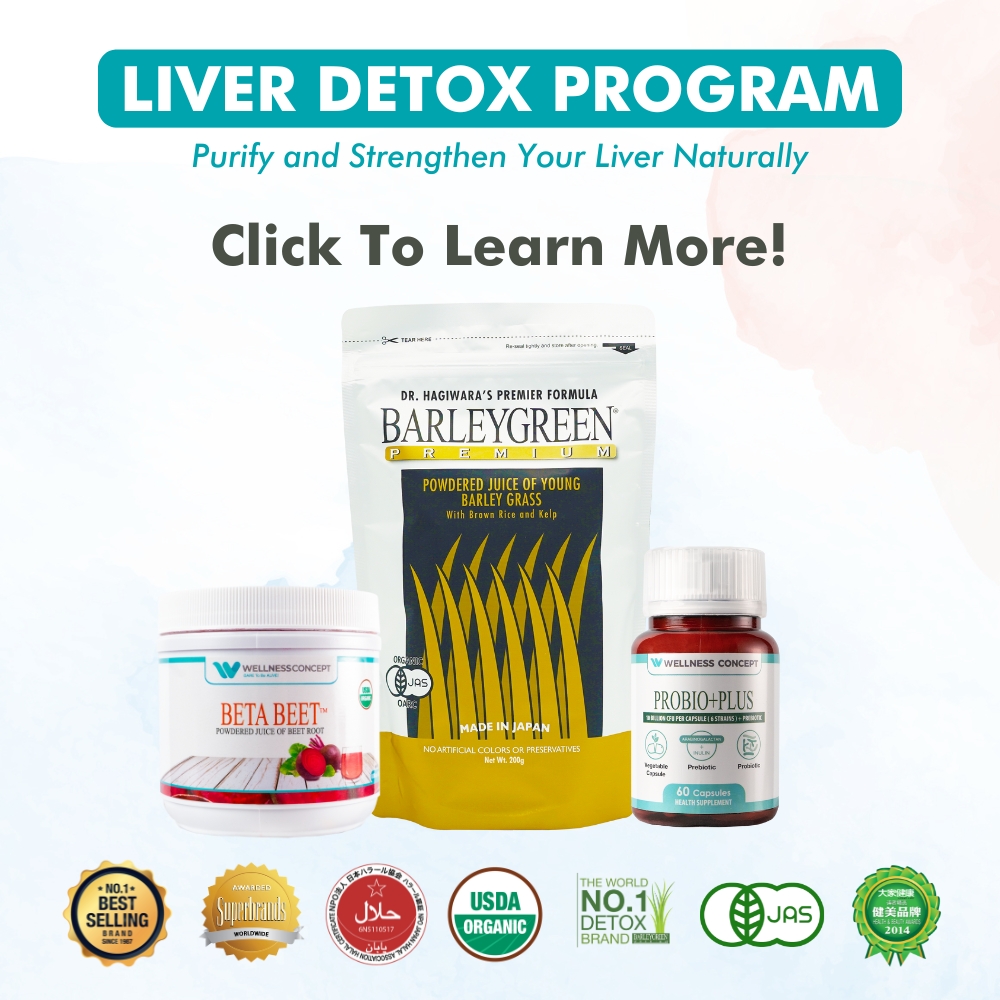Did you know that 45% of adults experience reduced flatulence after just two weeks of using specific probiotic strains? Probiotics, known as beneficial live microorganisms, are widely recognized for their positive effects on gut health. However, many people notice an increase in gas and bloating when they first start taking probiotics. This is a common sign that the gut is adjusting to the new bacteria.
Research shows that probiotics can help balance the gut microbiome, but temporary flatulence is often part of the process. This occurs as the body adapts to the introduction of these beneficial bacteria. While it might feel uncomfortable, it’s usually a short-term effect that subsides within a few days or weeks.

Click to 了解更多
For those seeking personalized advice, the Wellness Group is here to help. Reach out via WhatsApp: +60123822655 for expert guidance on managing probiotic-related symptoms. This article will explore the science behind probiotics, their benefits, and practical tips to minimize side effects like gas and bloating.
Key Takeaways
- Probiotics are beneficial live microorganisms that support gut health.
- Temporary flatulence is a common sign of the gut adjusting to probiotics.
- Research indicates that specific strains can reduce gas over time.
- Mild side effects like bloating usually subside within a few weeks.
- Consult the Wellness Group for personalized advice via WhatsApp: +60123822655.
Understanding Probiotics and Gut Health
Probiotics are live microorganisms that support a healthy digestive system. These beneficial bacteria are essential for maintaining a balanced gut microbiome, which plays a vital role in overall wellness. Unlike harmful germs, probiotics help the body function efficiently and promote digestive health.
What Are Probiotics?
According to the World Health Organization, probiotics are defined as “live microorganisms which, when consumed in adequate amounts, confer a health benefit on the host.” These microorganisms are naturally present in the body and can also be found in fermented foods like yogurt, kimchi, and kombucha. Probiotic supplements are another popular way to introduce these beneficial bacteria into the system.
How Beneficial Bacteria Support Digestion
The human body hosts trillions of bacteria, many of which reside in the gut. These microorganisms aid in breaking down food, absorbing nutrients, and maintaining a healthy digestive tract. When the balance of gut bacteria is disrupted, issues like gas, bloating, and irregular bowel movements can arise. Probiotics help restore this balance, improving digestion and reducing discomfort.
A balanced microbiome not only supports digestion but also enhances immunity, reduces inflammation, and promotes overall wellness. For those seeking to improve their gut health, incorporating probiotic-rich foods or supplements can be a practical step. Understanding these basics sets the stage for exploring how probiotics may cause temporary side effects like gas as the body adjusts.
Why do I fart a lot after taking probiotics?
The relationship between probiotics and flatulence is often misunderstood. While these beneficial bacteria are known to support gut health, they can also cause temporary gas as the body adjusts. This is a normal part of the process as the gut microbiome adapts to new strains of bacteria.

Exploring the Science Behind Gas Production
When probiotics are introduced, they interact with the existing bacteria in the gut. This interaction can lead to fermentation, which produces gas as a byproduct. A study published in 2020 found that certain strains of probiotics, such as Lactobacillus and Bifidobacterium, are more likely to cause this effect. These strains are highly effective in restoring balance but may temporarily increase gas production.
Another factor is the condition of the gut before starting probiotics. If there’s an imbalance, known as dysbiosis, the body may react more strongly. This can amplify the side effect of gas. However, research shows that these symptoms usually subside within a few weeks as the gut adjusts.
Linking Probiotic Strains to Flatulence
Not all probiotic strains have the same effect. Some are specifically designed to reduce gas, while others may temporarily increase it. For example, a 2018 study highlighted that certain strains can help alleviate symptoms of irritable bowel syndrome (IBS), including bloating and gas. Over time, these strains improve overall gut health, even if they cause initial discomfort.
It’s important to note that while probiotics may cause temporary gas, they play a crucial role in long-term digestive wellness. For those experiencing persistent symptoms, consulting a healthcare professional or exploring resources like probiotics for gas relief can provide tailored solutions.
Common Side Effects and Adaptation Strategies
Starting probiotics can lead to temporary digestive changes, including gas and bloating. These are common symptoms as the gut adjusts to the new bacteria. While they might feel uncomfortable, they usually subside within a few days or weeks.
Managing Initial Gas and Bloating

Click to 了解更多
When beginning probiotic supplements, some people experience mild bloating or gas. This is part of the adaptation process. Starting with a lower dose can help minimize these effects. Gradually increasing the dosage allows the body to adjust more comfortably.
Incorporating prebiotics into the diet can also support the process. Prebiotics are fibers that feed the beneficial bacteria, helping them thrive. Foods like bananas, garlic, and oats are excellent sources.
Tips to Ease Digestive Adjustment
Here are some actionable strategies to reduce discomfort during the transition phase:
- Begin with a smaller dose and increase it slowly over time.
- Pair probiotics with meals to reduce the likelihood of gas.
- Stay hydrated to support digestion and reduce bloating.
- Include fiber-rich foods to promote a healthy gut environment.
If symptoms persist or worsen, it’s important to consult a healthcare professional. Persistent discomfort could indicate an underlying infection or other digestive issue.
| Strategy | Benefit |
|---|---|
| Start with a lower dose | Reduces initial gas and bloating |
| Gradually increase dosage | Allows the body to adapt comfortably |
| Incorporate prebiotics | Supports beneficial bacteria growth |
| Stay hydrated | Improves digestion and reduces discomfort |
Understanding these strategies can make the transition smoother. For personalized advice, the Wellness Group is available to guide you through the process. Reach out via WhatsApp: +60123822655 for expert support.
For more insights on managing gas production, explore this detailed resource on intestinal gas dynamics and effective strategies.
Diet, Supplements, and Their Impact on Gut Gas
Fermented foods and probiotic supplements play a significant role in gut health and gas production. While they offer numerous benefits, they can also influence flatulence, especially during the initial adjustment period. Understanding how these elements interact with the digestive system can help manage symptoms effectively.

Fermented Foods and Their Role in Flatulence
Fermented foods like yogurt, kefir, kombucha, sauerkraut, and kimchi are rich in beneficial bacteria. These foods can enhance gut health by introducing live cultures that support digestion. However, they may also temporarily increase gas production as the gut adapts to the new bacteria.
For example, yogurt contains Lactobacillus strains, which are known to improve gut balance but may cause initial bloating. Similarly, kombucha, a fermented tea, can introduce diverse bacteria strains, aiding digestion while potentially increasing flatulence.
Including these foods in moderation can help the body adjust more comfortably. Pairing them with fiber-rich foods like oats or bananas can also support a smoother transition.
Selecting the Right Probiotic Supplement
Choosing a high-quality probiotic supplement is crucial for minimizing side effects like gas and bloating. Look for products that specify the bacterial strains and their CFU (colony-forming units) count. Strains like Lactobacillus and Bifidobacterium are particularly effective for digestive health.

Click to 了解更多
Starting with a lower dose and gradually increasing the dosage can help the gut adapt more easily. It’s also important to read labels carefully to ensure the supplement contains no unnecessary additives that could exacerbate symptoms.
For those experiencing persistent issues, consulting a healthcare professional or exploring resources like probiotic supplement for digestive health can provide tailored solutions.
Practical Tips for Managing Gut Gas
Here are some strategies to reduce discomfort while improving gut health:
- Incorporate fermented foods gradually to allow the gut to adjust.
- Pair probiotics with meals to minimize gas production.
- Stay hydrated to support digestion and reduce bloating.
- Include prebiotic-rich foods like garlic and onions to feed beneficial bacteria.
| Strategy | Benefit |
|---|---|
| Gradual introduction of fermented foods | Reduces initial gas and bloating |
| Pairing probiotics with meals | Minimizes digestive discomfort |
| Staying hydrated | Supports overall digestive function |
| Including prebiotic-rich foods | Enhances beneficial bacteria growth |
By understanding the role of diet and supplements, individuals can take proactive steps to manage gut gas while reaping the benefits of a healthier digestive system.
Expert Recommendations and Maintaining a Balanced Microbiome
Maintaining a balanced gut microbiome requires expert guidance and tailored strategies. A healthy gut not only supports digestion but also enhances overall wellness. For those experiencing discomfort, consulting a healthcare professional can provide personalized advice to optimize probiotic use.
Consulting Healthcare Professionals for Personalized Advice

Click to 了解更多
Every person has a unique gut environment, which means a one-size-fits-all approach to probiotics may not work. Healthcare professionals can assess individual needs and recommend the right type of probiotic supplement. This personalized approach minimizes risk and maximizes the benefit of probiotics working in the background.
For example, individuals with conditions like irritable bowel syndrome (IBS) or inflammatory bowel disease may require specific strains. Experts can also monitor progress and adjust dosages to ensure the system adapts smoothly. For tailored advice, the Wellness Group is available via WhatsApp: +60123822655.
Additional Lifestyle Strategies for Gut Health
Beyond probiotics, lifestyle changes can significantly improve gut health. Dietary modifications, regular exercise, and stress management are key factors. Including prebiotic-rich foods like garlic and onions can nourish beneficial bacteria, while staying hydrated supports digestion.
Exercise promotes healthy gut motility, and stress management techniques like meditation can reduce inflammation. These strategies, combined with expert advice, create a holistic approach to maintaining a balanced microbiome.
| Strategy | Benefit |
|---|---|
| Consult a healthcare professional | Tailored probiotic recommendations |
| Incorporate prebiotic-rich foods | Enhances beneficial bacteria growth |
| Regular exercise | Improves gut motility |
| Stress management | Reduces inflammation |
For more insights on managing digestive symptoms, explore this detailed resource on probiotics for gas, bloating, and constipation. A few tailored adjustments may also improve overall gut health and well-being.
Conclusion
Understanding the temporary effects of probiotics can help ease concerns about digestive changes. Increased gas is a normal, short-term result of the gut adjusting to new beneficial bacteria. With patience and the right approach, these symptoms often subside within a few weeks.
Choosing the correct probiotic type and dosage is essential. Pairing supplements with meals, staying hydrated, and incorporating prebiotic-rich foods can make the transition smoother. These strategies provide a practical way to manage discomfort while supporting long-term gut health.
Maintaining a balanced microbiome offers numerous benefits, from improved digestion to enhanced immunity. For personalized advice, the Wellness Group is here to help. Reach out via WhatsApp: +60123822655 for expert guidance tailored to your needs.
For more insights, explore resources like probiotics for excessive gas. Taking informed steps empowers individuals to achieve digestive wellness and overall health.
FAQ
What are probiotics?
Probiotics are live beneficial bacteria that support gut health. They are found in supplements and fermented foods like yogurt, kefir, and sauerkraut.
How do probiotics affect digestion?
Probiotics help balance the gut microbiome, improving digestion and nutrient absorption. They may also reduce symptoms like bloating and constipation.
Can probiotics cause gas and bloating?
Yes, some people experience gas and bloating when starting probiotics. This is often temporary as the gut adjusts to the new bacteria.
Which probiotic strains are linked to flatulence?
Strains like Lactobacillus and Bifidobacterium can sometimes increase gas production. The effect varies depending on the person’s gut microbiome.
How can someone manage gas from probiotics?
Starting with a lower dose and gradually increasing it can help. Drinking plenty of water and eating fiber-rich foods may also ease symptoms.
Are fermented foods better than probiotic supplements?
Fermented foods provide natural probiotics and additional nutrients. However, supplements offer specific strains and higher doses for targeted benefits.
How long does it take for the body to adjust to probiotics?
Most people adapt within a few days to a couple of weeks. Persistent symptoms may require consulting a healthcare professional.
Can probiotics help with constipation?
Yes, certain probiotic strains can improve bowel movements and relieve constipation by promoting a healthy gut environment.
What should someone look for in a probiotic supplement?
Choose a supplement with well-researched strains, a high CFU count, and third-party testing for quality and potency.
When should someone consult a doctor about probiotics?
If symptoms like severe bloating, gas, or diarrhea persist, it’s best to seek medical advice to rule out underlying conditions.





